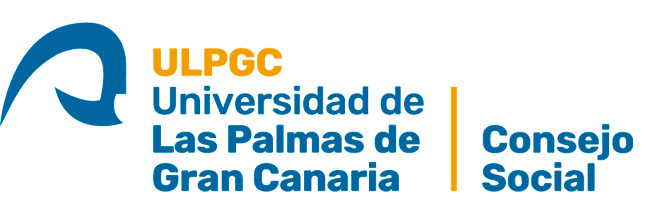The rector of the ULPGC, Rafael Robaina, has presented to the Social Council the main undertakings carried out during his mandate, which began in 2017 and will soon come to an end with the upcoming election of a successor.
For Rafael Robaina, “these have been four years of intense work as we inherited the leadership of this university while emerging from a significant economic crisis and as we now also have to manage the University in the face of another unprecedented crisis and within very exceptional circumstances”.
Among his governing team’s achievements over the past four years, the rector highlighted their commitment to the rejuvenation of the ULPGC teaching body and creating permanent positions and staff members. “Over these four years, we have made more than 200 of our teaching staff into permanent employees, but there are 100 to be awarded this status when we take into account the retirements we are seeing”. Similarly, he emphasised the current and necessary rejuvenation of the ULPGC workforce’s administration and services staff members, “another of the great pillars of our university”. He reported that the public advertisement of 130 ULPGC administration and services staff positions had been approved. “We are attempting to combat the temporary nature of our staff and for this reason have advertised vacancies within the process of creating permanent positions and staff members”.
Among other issues addressed by remit and Vice Rectorate, the rector highlighted “that during these past few years we have steered the university towards being more enterprising, more proactive and connected to the business sector” and that, as a result, “we have created an entrepreneurial ecosystem within the university itself, with programmes such as Futura-T in which over one thousand students, researchers, and teaching staff have participated, or the opening of the NEXO centre on the Tafira campus – a space for collaboration between the University and business”.
The rector also gave a special mention to the Vice Rectorate for Quality, emphasising the hard work carried out in order to certify many of the ULPGC centres and qualifications, as well as to evaluate teaching. Consequently, “we have managed to make the ULPGC a benchmark for university quality on a national level”. Regarding the internationalisation of the ULPGC, Rector Rafael Robaina explained that his governing team had redirected policy within this area “towards a more geostrategic position, more closely linked to the African continent”. Because of this, the ULPGC currently heads the new Network for Universities in North-Western Africa and Macaronesia, “and in this way has become a Africa, as many universities, businesses and institutions already see us as a university specialising in this geographic context”.
Relating to the courses offered, the rector outlined the increase in double degrees, new masters degrees, qualifications exclusive to the ULPGC, and specialist qualifications which have been initiated during these past few years “in order to answer the demands of society and of our production system”. The new CRAAL [Resource Centre for Independent Language Learning] portal for lifelong learning has also become a great partner for the business sector, offering a broad range of online and face-to-face training.
The members of the Social Council thanked the rector for his report. They also thanked him for putting himself forward for the role four years ago – as it is a position with a high level of responsibility concerning the development of the Canary Islands. The plenary also congratulated the whole of his governing team.


